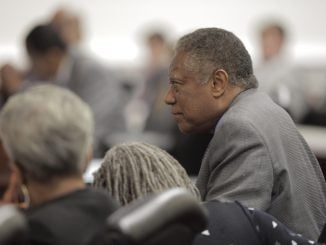- Federal judges order N.C. to use “special master” version of state legislative maps
- Republican lawmakers say they will appeal to the U.S. Supreme Court
- earlier this week in a separate case, SCOTUS stayed a lower court order to redraw the state’s congressional maps
RALEIGH — A federal three-judge panel issued an opinion Friday ordering the State of North Carolina to adopt the new state legislative election maps modified at the court’s direction by Stanford University professor Nathaniel Persily. State lawmakers say they will appeal the order to the U.S. Supreme Court. N.C. House Rep. David Lewis (R-Harnett) and Sen. Ralph Hise (R-Mitchell), chairmen of the General Assembly’s redistricting committees, called the maps a “thinly-veiled political operation” designed to give Democrats an electoral advantage.
The court had previously concluded in 2016 that the legislature relied too much on race in drawing the lines of twenty-eight districts in their 2011 maps. Subsequently, the court gave the General Assembly until September 1, 2017, “to enact new House and Senate districting plans remedying the constitutional deficiencies” with the districts found unconstitutional in 2016. In August 2017, the General Assembly adopted new maps they said did not rely on race as a factor in the map lines. Still,, the plaintiffs in the Covington v. State of N.C. case objected again to the maps drawn by the General Assembly. Prior to ruling on the constitutionality of the newly drawn districts, the three-judge panel named a “special master” — Persily — to draw his own set of House and Senate districts.
The court’s Friday ruling orders the General Assembly to adopt the maps recommended by the special master.
The primary holding of the three-judge panel was:
“We sustain Plaintiffs’ objections to the Subject Districts and approve and adopt the State’s 2017 Plan, as modified by the Special Master’s Recommended Plan, for use in future North Carolina legislative elections. Accordingly, this Court’s previous injunction against the State from conducting any elections for State House and State Senate offices, Order and Judgment, Aug. 15, 2016, is dissolved. We direct the Defendants to implement the Special Master’s Recommended Plans.”
Sen. Hise and Rep. Lewis issued a joint statement after the order was filed:
“It is a shocking move for one of the same judges just reined in by a bipartisan U.S. Supreme Court less than 24 hours ago to again attempt to create chaos and confusion in an election process set to begin in just three weeks. The legislature has repeatedly asked this court to provide guidance, citing the urgency of the upcoming candidate filing period. Contrary to our pleas and fresh off yesterday’s stinging rebuke from the high court, this panel has unleashed another bout of uncertainty that could harm North Carolina voters who are entitled to free and fair elections. We will appeal to the U.S. Supreme Court.”
The Republican-led legislature had already received a victory in the country’s highest court this week after the Supreme Court issued a stay blocking a separate three-judge panel — that also includes Judge Wynn — that had ordered North Carolina to redraw its congressional maps.



